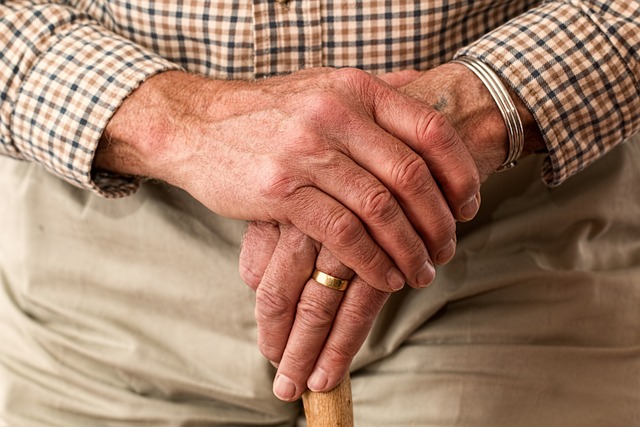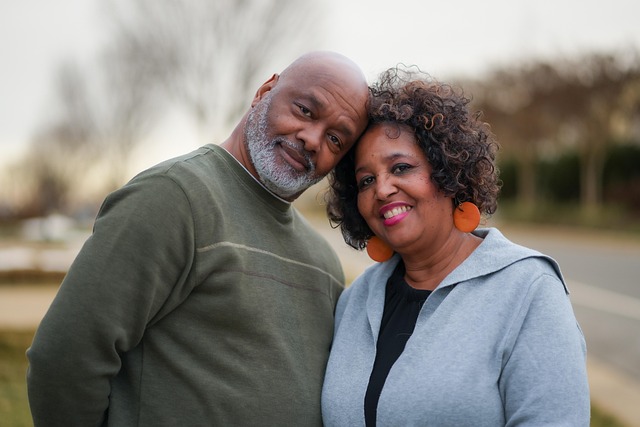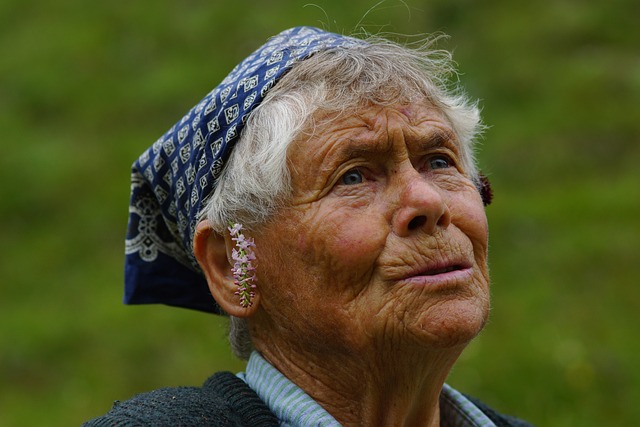Elderly Companion Services focus on creating a safe and comfortable living environment for seniors by optimizing their spaces through decluttering and downsizing, ensuring a reduced risk of falls and easier navigation. Key safety features include clear pathways, secure rugs, managed cords and furniture, enhanced lighting with night lights and brighter bulbs, grab bars, secure railings, and non-slip mats. For comfort, elderly companion services involve strategically placing furniture, accessible shelves, labeled storage, and positioning appliances and equipment at comfortable heights to maintain the seniors' dignity and independence. Daily cleaning routines are implemented to preserve health and hygiene, with a focus on disinfecting high-touch surfaces and assisting with personal hygiene needs. Decluttering and downsizing are also part of these services, done with empathy to respect the emotional attachment to belongings while improving safety and well-being. This holistic approach by Elderly Companion Services supports the overall quality of life for seniors, allowing them to age gracefully in familiar surroundings.
Navigating the golden years with ease and comfort is paramount, especially for elderly individuals who may face challenges with daily tasks. Elderly companion services play a crucial role in ensuring seniors’ living spaces are organized for their safety and comfort. This article delves into effective light housekeeping strategies tailored for elderly clients. From establishing practical daily cleaning routines that prioritize hygiene and health to offering guidance on decluttering and downsizing, these practices are designed to enhance the quality of life for seniors. With a focus on Elderly Companion Services, we aim to provide actionable tips for service providers to help their clients maintain an environment that is both safe and conducive to well-being.
- Organizing Living Spaces for Safety and Comfort: Tips for Elderly Companion Services
- Daily Cleaning Routines: Maintaining Hygiene and Health for Senior Clients with Elderly Companion Services
- Decluttering and Downsizing Strategies for Elderly Clients: A Guide for Companion Service Providers
Organizing Living Spaces for Safety and Comfort: Tips for Elderly Companion Services

When providing elderly companion services, organizing living spaces to enhance safety and comfort is paramount. A well-organized environment can significantly reduce the risk of falls and injuries, which are common concerns among the elderly. Start by decluttering high-traffic areas, ensuring pathways from rooms to corridors are clear of obstacles. Remove or secure loose rugs, cords, and furniture that could pose tripping hazards. Next, prioritize lighting; install night lights in hallways and bathrooms, and replace bulbs with brighter options to improve visibility.
Safety features such as grab bars near toilets and in the shower can be installed for added support. Regularly check that railings are secure and sturdy, and consider adding non-slip mats in bathtubs and showers. For comfort, arrange furniture so there is ample space to move around without strain. Use shelves and storage containers that are easily accessible to keep frequently used items within reach. Labeling these containers can be helpful for those with cognitive challenges. Additionally, ensure that the most often used appliances and equipment are in good working order and positioned at heights that are comfortable for your elderly clients. By implementing these tips, elderly companion services can create a safer and more pleasant living space that respects the dignity and independence of seniors.
Daily Cleaning Routines: Maintaining Hygiene and Health for Senior Clients with Elderly Companion Services

When providing elderly companion services, establishing consistent daily cleaning routines is crucial for maintaining both hygiene and health among senior clients. A clean environment significantly contributes to a senior’s well-being, reducing the risk of infections and complications. Caregivers should focus on key areas where bacteria and germs can thrive, such as kitchen countertops, doorknobs, faucets, and frequently used appliances. Ensuring that these surfaces are sanitized daily helps in preventing the spread of illnesses, which is particularly important for elderly individuals whose immune systems may not be as robust as they once were.
In addition to surface cleaning, personal hygiene practices should be encouraged and assisted. This includes daily bathing or showering, oral care, and proper management of incontinence products if needed. Elderly companion services can provide the necessary support to facilitate these routines. For instance, companions can remind clients to wash their hands, brush their teeth, and change clothing or bedding regularly. By promoting a hygienic living space and supporting personal care tasks, elderly companion services play a vital role in preserving the health of senior clients, allowing them to live with dignity and comfort in their own homes.
Decluttering and Downsizing Strategies for Elderly Clients: A Guide for Companion Service Providers

When providing companion services to elderly clients, decluttering and downsizing are essential practices that not only enhance their living environment but also ensure their safety and well-being. A cluttered space can pose tripping hazards and make it difficult for seniors to navigate their homes comfortably. Companion service providers should approach this task with sensitivity and patience, understanding that downsizing might be an emotional process for the elderly. Begin by helping clients categorize items into keep, donate, or discard, focusing on functionality and sentiment rather than quantity. Encourage them to maintain only what is necessary for their daily needs and what brings them joy. Offer practical solutions such as organizing storage spaces effectively, utilizing vertical space for items that are used infrequently, and creating clear pathways throughout the home. It’s also beneficial to assist clients in identifying local resources for donating or recycling items they no longer need. By doing so, not only will the living space be safer and more manageable, but it can also alleviate the stress of maintaining a large household alone. This process aligns with the principles of elderly companion services, which prioritize the dignity and comfort of the senior while ensuring their environment supports an independent and safe lifestyle.
In conclusion, maintaining a clean, organized, and safe living environment is paramount for the well-being of elderly clients. Through tailored companion services, professionals can effectively assist seniors in managing their daily cleaning routines, decluttering, and downsizing, thereby promoting both hygiene and comfort. By implementing the strategies outlined in “Organizing Living Spaces for Safety and Comfort,” “Daily Cleaning Routines for Maintaining Hygiene and Health,” and “Decluttering and Downsizing Strategies for Elderly Clients,” companion service providers can enhance the quality of life for their senior clients. These practices not only support the elderly in maintaining their independence but also play a critical role in safeguarding their health, making Elderly Companion Services an invaluable resource for seniors seeking assistance with their household needs.




